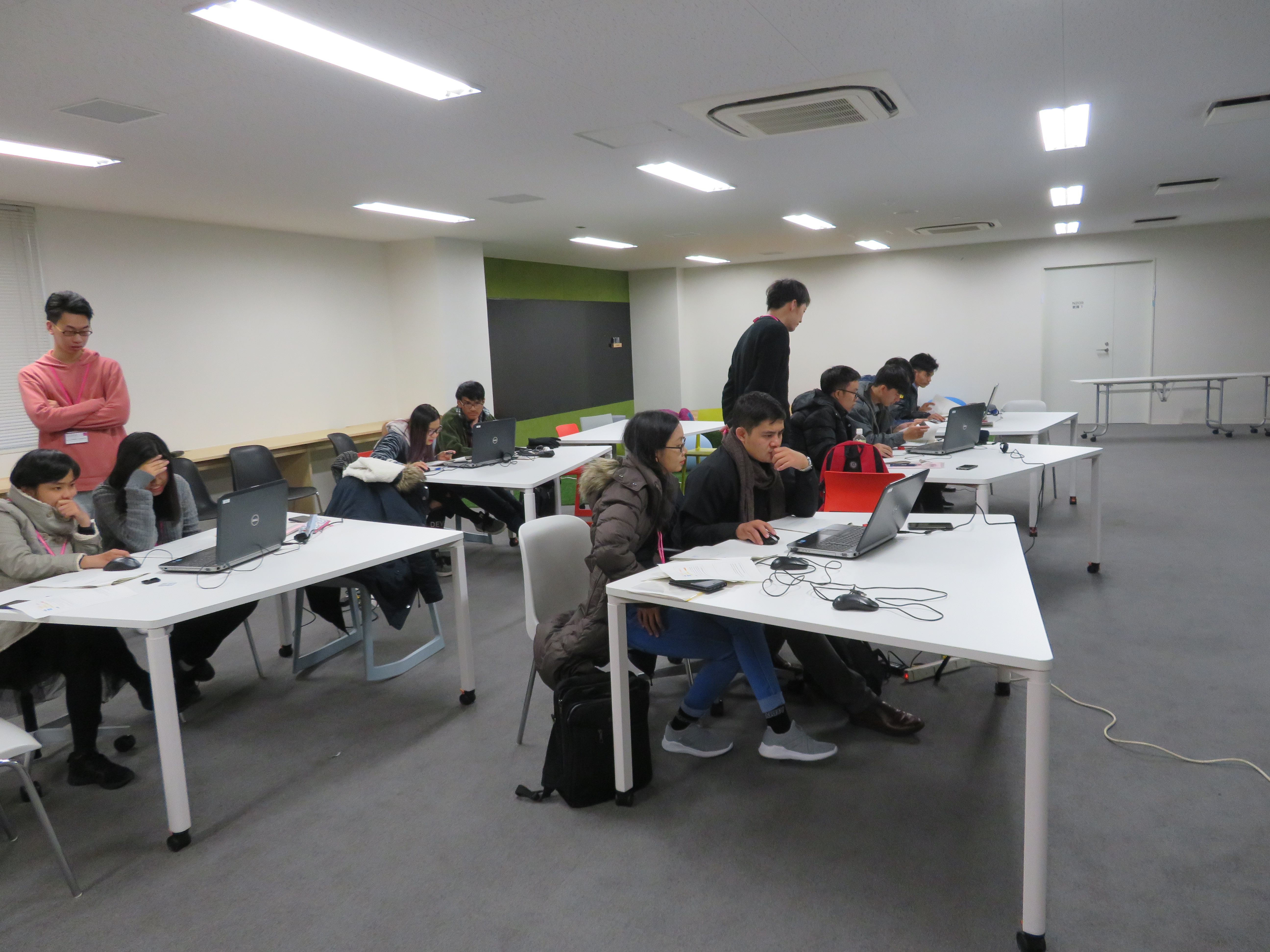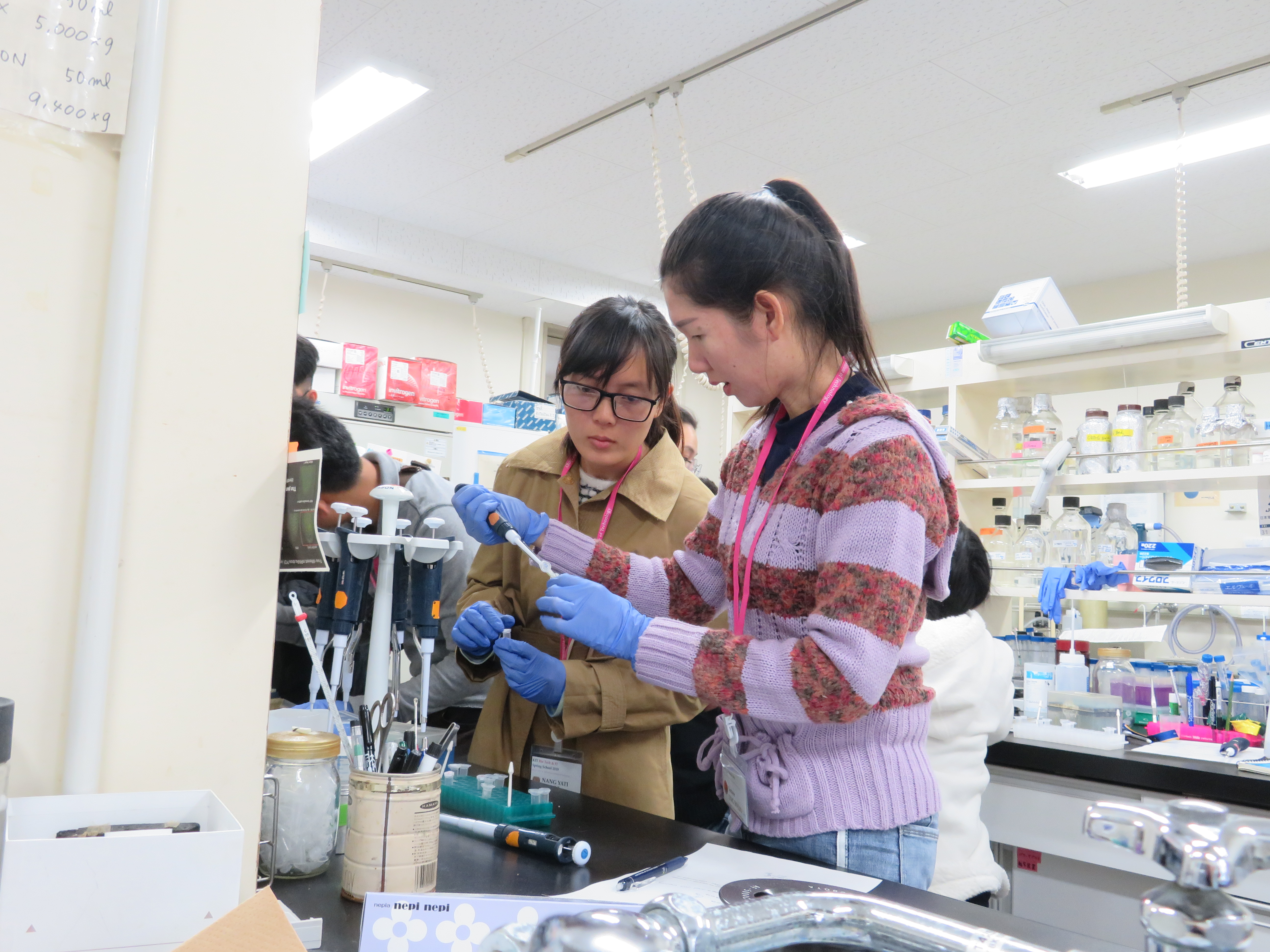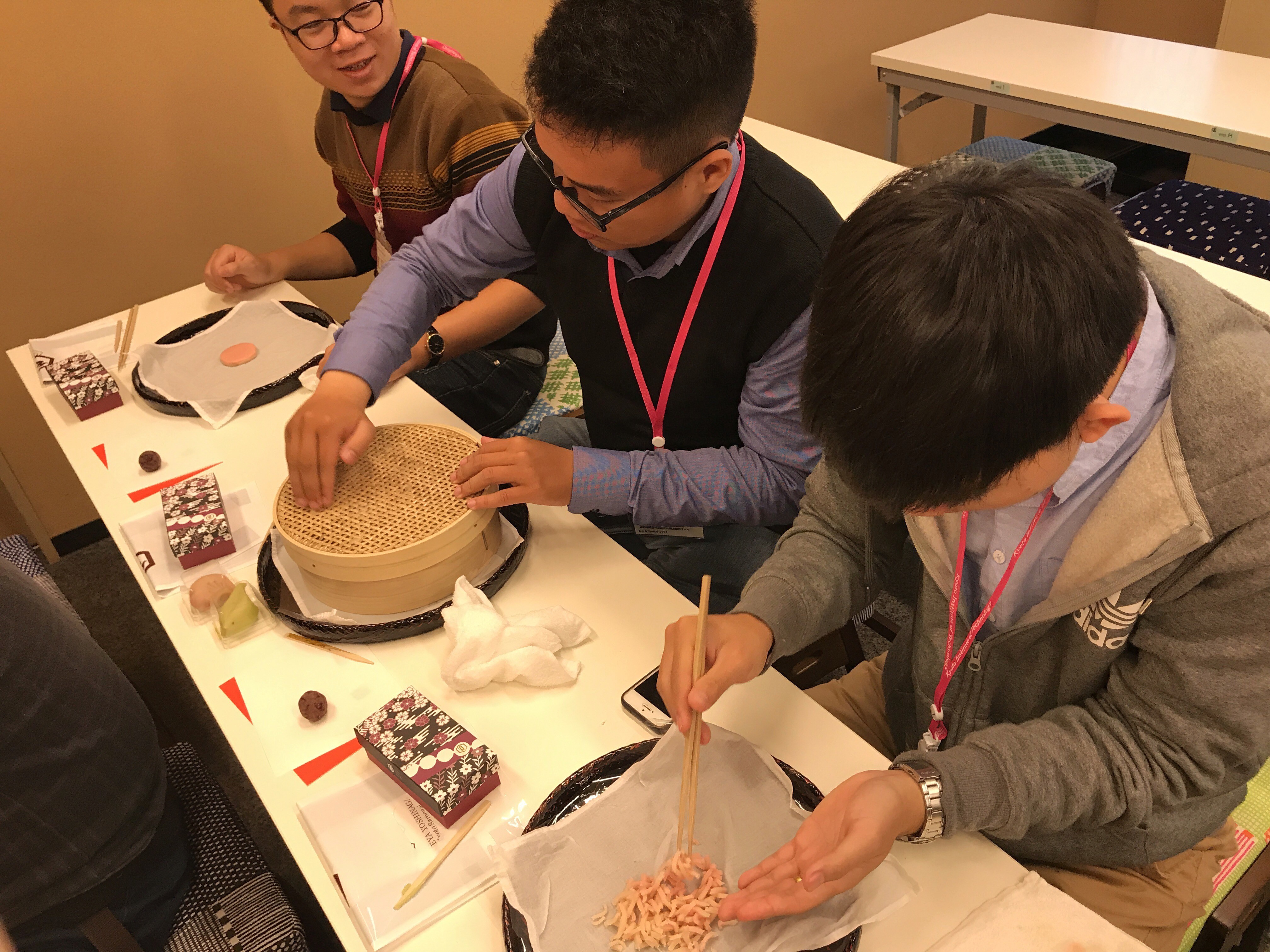KIT Bio Tech × IT Spring School 2019
This year’s “KIT Bio Tech × IT Spring School 2019,” led by Professor Kaeko Kamei (Molecular Chemistry and Engineering) and Associate Professor Masayuki Fukuzawa (Information and Human Sciences), took place over the fourth week of February, from Sunday, February 17 to Sunday, February 24.
The JST Sakura Science Program Fund enabled fifteen students* from seven universities in four countries (Vietnam, Laos, Cambodia and Myanmar) and seven students from KIT to gain further practical experience in their respective fields. One group attended special lectures and participated in workshops on Bio-science and another on IT. A sample from KIT’s world-renown collection of Drosophila was used in one of the three experiments conducted by the “Bio” group. Prof. Kamei has been conducting joint research with scientists in Vietnam and other Southeast Asian countries for nearly 20 years on bacterial control by natural products. This was the basis for one of the Bio workshops. For their part, KIT students gained valuable experience instructing the group on the use of certain precision instruments not currently available at their universities. Meanwhile, Assoc. Prof. Fukuzawa instructed pairs of IT group participants in the creation of a wireless IoT device-controlled dashboard prototype. On the final day of the Spring School the groups convened to present their findings and report on their experiences. Each of three Bio groups reported on one of their three experiments and the IT group proposed several unique systems. One such system visualized product-quality indicators and production speeds, and was even able to remotely detect and monitor the anomalous attitude of transport trucks, using various sensors built into wireless IoT devices.
As this was the participants’ first visit to Japan, social and cultural aspects of Japan were also discussed. Participants toured a Shimadzu Corporation factory where they learned about the effort placed on quality assurance and how newly developed technologies were integrated into products. Participants also experienced making sweets and sampling the traditional culture of Japan’s former capital of Kyoto.
A common passion for science and this shared Spring School experience produced bonds of friendship that overcame the obstacle of five national and linguistic differences. We are happy to hear that participants are continuing to message each other through SNS from their respective countries. KIT will continue joint research, student acceptance and other exchange with these universities. As an added bonus, this Spring School provided an opportunity for the Japanese student participant/instructors to think about studying and working abroad. Everyone involved found this 8-day program to have been meaningful for all involved.
*Participants:
Royal University of Phnom Penh (Cambodia): 2 students, 1 lecturer
Kirirom Institute of Technology (Cambodia): 2 students
University of Science, Vietnam National University Ho Chi Minh City (Vietnam): 3 students
Can Tho University (Vietnam): 3 students
Hanoi University of Science and Technology (Vietnam): 1 students
National University of Laos (Laos): 2 students, 1 lecturer
Yangon Technological University (Myanmar): 2 students, 1 assistant lecturer
 IT group workshop
IT group workshop Bio group practical work
Bio group practical work Making Japanese sweets
Making Japanese sweets Completion ceremony
Completion ceremony
